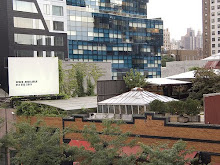


163 East 111th Street, on the corner of Lexington Avenue and 111th Street, one block up from the 110th street 6 train station
El Barrio, also known as East Harlem and Spanish Harlem, has been home to many different ethnic groups throughout the years, but has remained predominantly Puerto Rican since the 1950s. The Young Lords Party, also referred to as the Young Lords Organization/YLO, was founded by a group of mostly Puerto Rican college students in New York City. El Barrio became their home base, so to speak. Originally operating under the name The New York City Young Lords Organization, the group drew inspiration from other social liberation movements happening around the nation at the time. Popularly discussed as a Puerto Rican organization similar or parallel to the Black Panther Party, the Young Lords Party in New York City also drew inspiration from the Young Lords in Chicago—a former street organization that took up the mantle of Latino rights and began community programming and actions in the 1960s.
The Young Lords prided themselves on being accountable to the needs and demands of the community of El Barrio. A famous action was their campaign to remove trash from East Harlem’s streets. When city bureaucracy and services proved insufficient in meeting these basic sanitation needs, the Young Lords mobilized the community, both cleaning the trash themselves and setting it on fire in protest. Other actions included hijacking and operating a medical-services truck in the neighborhood, offering free meals and clothing, and teaching liberation classes, among many others. One of their best-known public statements was the occupation of a church in the neighborhood.
The Young Lords took over the First Spanish Methodist Church for 11 days, beginning on December 28, 1969. The church is located at 163 East 111th Street, on the corner of Lexington Avenue and 111th Street, one block up from the 110th street 6 train station. Since this neighborhood was (and remains) predominantly Puerto Rican and served as their operating base, they renamed it the “People’s Church.” During the 11 days of the occupation used the church as a hub to provide day-care, health services, free breakfast and clothing, and arts and educational programming to thousands of supporters. The Board of Mediation for Community Disputes played a role in establishing the Young Lords through this occupation; they recognized the YLO’s legitimacy by proclaiming the Young Lords representatives of a particular constituency. In January of 1970, police invaded the church and arrested over 150 Young Lords members. Though the occupation was short-lived, the site remains well known in the East Harlem community for its connection to and legacy of the Young Lords and community activism in El Barrio.
Works Cited:
Arguello, Martha, "Sisters, Brothers, Young Lords," ReVista, the Harvard Review of Latin America. Volume VIII, Number 18. pp. 43-45. Winter 2009.
Deutsch, Morton. The Resolution of Conflict Constructive and Destructive Processes (Carl Hovland Memorial Lectures Series). New York: Yale UP, 1977. Print.
"Influential Puerto Rican Activist Group the Young Lords Marks 40th Anniversary." Democracy Now! | Radio and TV News. Web. 01 Dec. 2009. <http://www.democracynow.org/2009/8/21/young_lords>.
Melendez, Mickey. We Took the Streets Fighting for Latino Rights with the Young Lords. New York: St. Martin's, 2003. Print.
Palante, siempre Palante! Dir. Iris Morales. Adapt. Faith Jones. Perf. Patria Rodriguez, Young Lords. Third World Newsreel, 1996. Videocassette.
Young Lords. The Ideology of the Young Lords Party. Bronx, NY: The Young Lords Party, 1972. Print. http://www.archive.org/details/YoungLordsIdeology

It looks quite old place with great history about it. I appreciate this nice post. compare park and fly deals
ReplyDeleteI enjoyed reading your article . Please continue publishing helpful topics like this. Regards, I think this article. will fully complement your article. Types Of Immigration Law In Buffalo NY
ReplyDelete